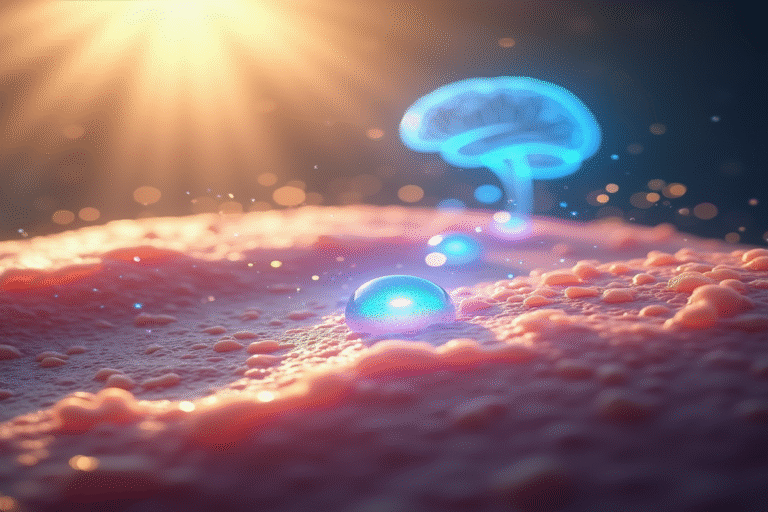When you think about what senses light in your body, your eyes are probably the only organs that come to mind. Surprisingly, your skin—the body’s largest organ—also contains specialized photoreceptors that can detect light, even when your eyes cannot. These receptors play a crucial role in synchronizing your body’s internal clock with the external world’s day-night cycle.
The Skin’s Hidden Light Sensors
Scientists have discovered that some skin cells contain photoreceptive proteins, including melanopsin—the same protein found in specialized retinal cells of your eyes. Unlike the rods and cones in your eyes that enable vision, melanopsin doesn’t help you “see” in the traditional sense. Instead, it detects changes in light intensity, especially blue light, and helps regulate your body’s circadian rhythms.
“This discovery was revolutionary,” explains Dr. Elena Oancea, who has led research at Brown University. “We found that skin cells can detect light directly and independently from the brain or eyes.”
How Does It Work?
When light penetrates your skin, it activates these melanopsin receptors, starting a cascade of biochemical reactions. These reactions influence local processes such as:
- Pigmentation responses (tanning)
- DNA repair mechanisms
- Skin cell regeneration
- Regulation of vitamin D synthesis
Perhaps most fascinating is that these skin photoreceptors can communicate with your central nervous system, helping to maintain your body’s master clock in a brain region called the suprachiasmatic nucleus.
Beyond Day and Night: Surprising Implications
This ability of your skin to sense light has remarkable implications:
1. Your Skin Has Its Own Timing System
Research shows that isolated skin cells maintain their own rhythmic patterns when exposed to light-dark cycles—even when separated from the rest of the body. This means your skin essentially operates on its own daily schedule.
2. Evening Skin Is Different From Morning Skin
Your skin’s permeability changes throughout the day because of these light-sensitive cycles. Studies have found that skin absorbs some medications and creams more effectively at certain times. Skin repair processes also accelerate at night, which is why dermatologists recommend applying specific treatments before bed.
3. Light Exposure Through Skin Affects Sleep Quality
Even when your eyes are closed or covered, light on your skin can potentially disrupt your sleep cycle. This might explain why some people are sensitive to light when trying to sleep—their skin may be detecting light and sending signals to the brain that promote alertness.
Modern Life Challenges
Our ancestors evolved with regular natural light cycles, but modern life has changed our light environment dramatically:
“We’re now exposed to artificial light at all hours, and our skin cells haven’t evolved to understand that blue light from a smartphone at midnight isn’t the same as midday sunshine,” notes chronobiologist Dr. Sarah Martinez.
This constant exposure to artificial light may be confusing our skin’s photoreceptors, potentially contributing to disrupted sleep patterns, premature skin aging, and even some metabolic disorders.
Practical Applications
This research has led to new developments:
- Chronocosmetics: Skincare products tailored for specific times of day based on the skin’s circadian rhythms
- Light therapy: Treatments that use specific wavelengths to reset disrupted skin clocks
- Wearable technology: Devices that monitor and optimize light exposure for better health
Understanding that your skin can sense day and night independently from your eyes shows how closely your body is attuned to its environment. Your skin isn’t just a passive barrier—it’s actively detecting the world around you, helping coordinate your body’s response to the daily rhythm of light and darkness.
Next time you feel sunlight on your skin, remember: those rays aren’t just making you feel warm or triggering vitamin D production—they’re also sending important timing signals to cells throughout your body, quietly organizing countless processes that keep you in sync with the world’s natural rhythms.





